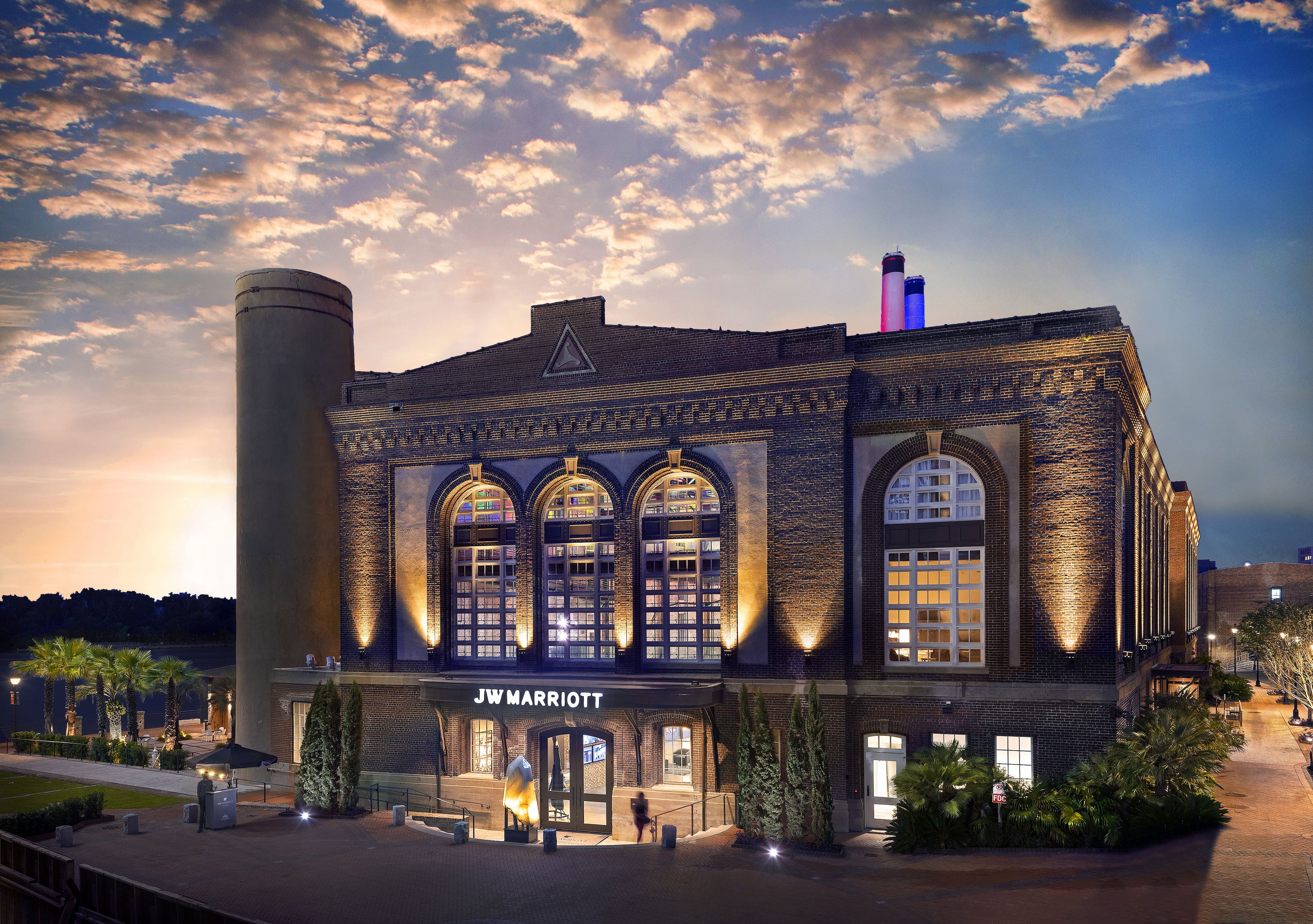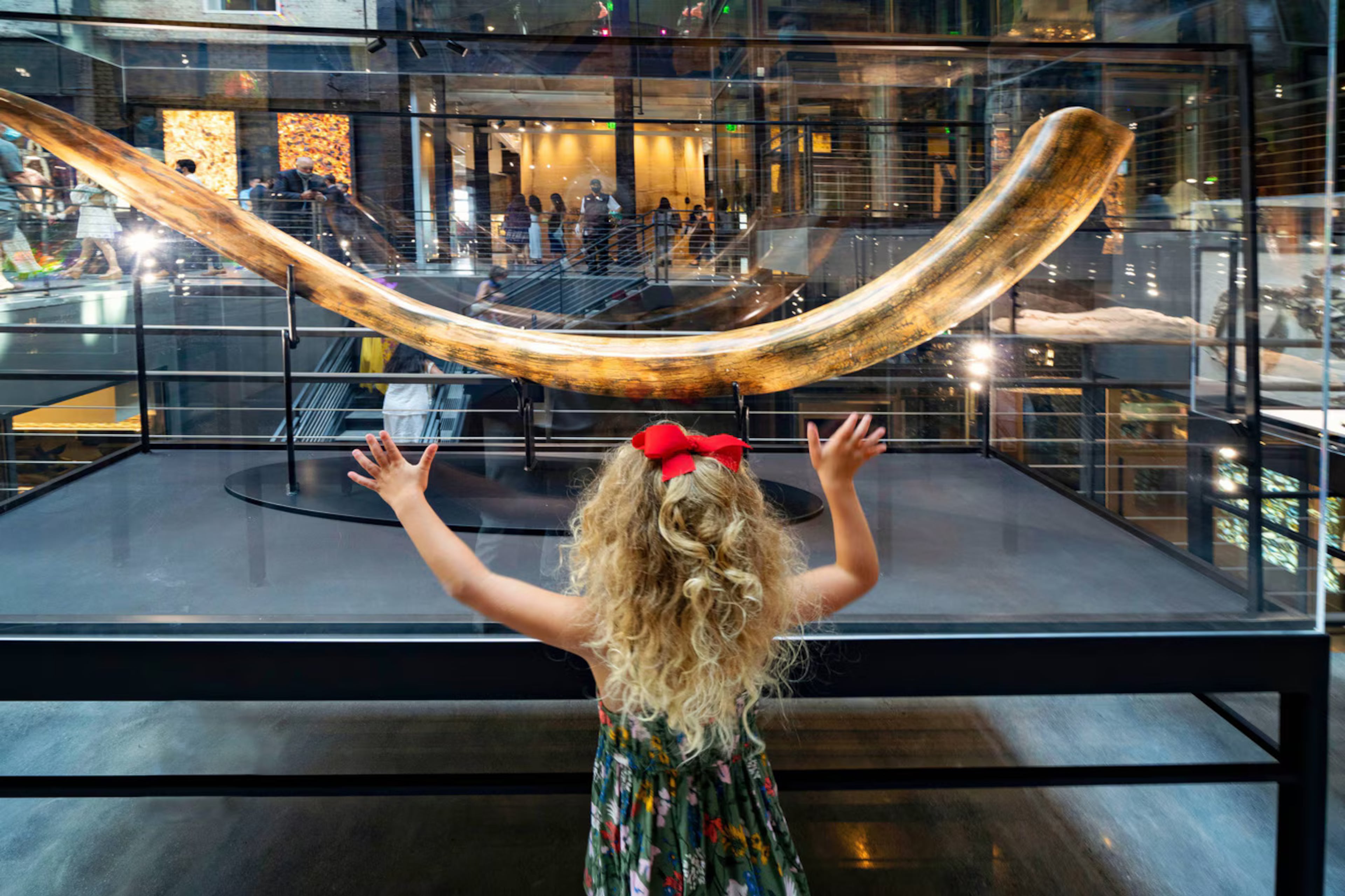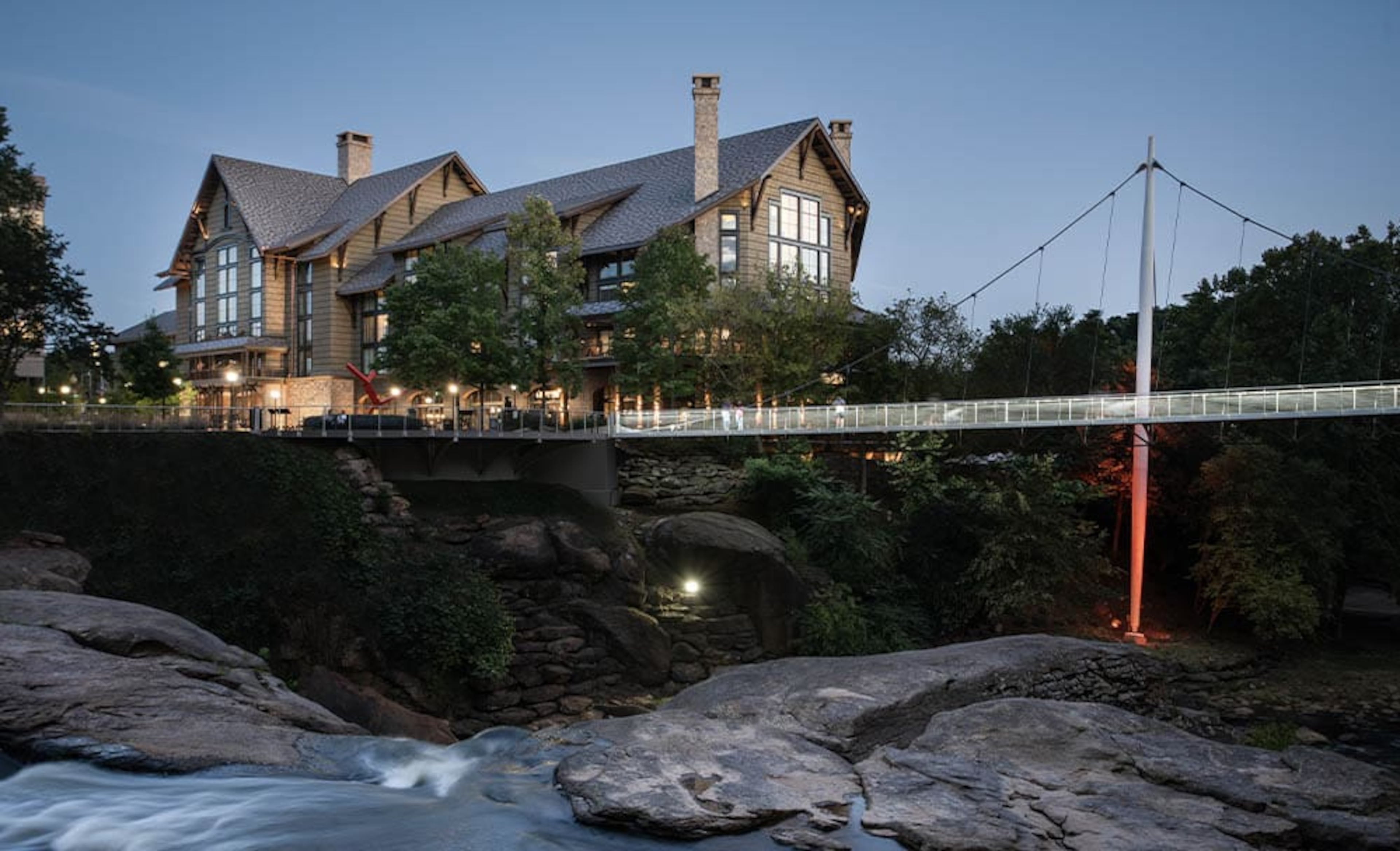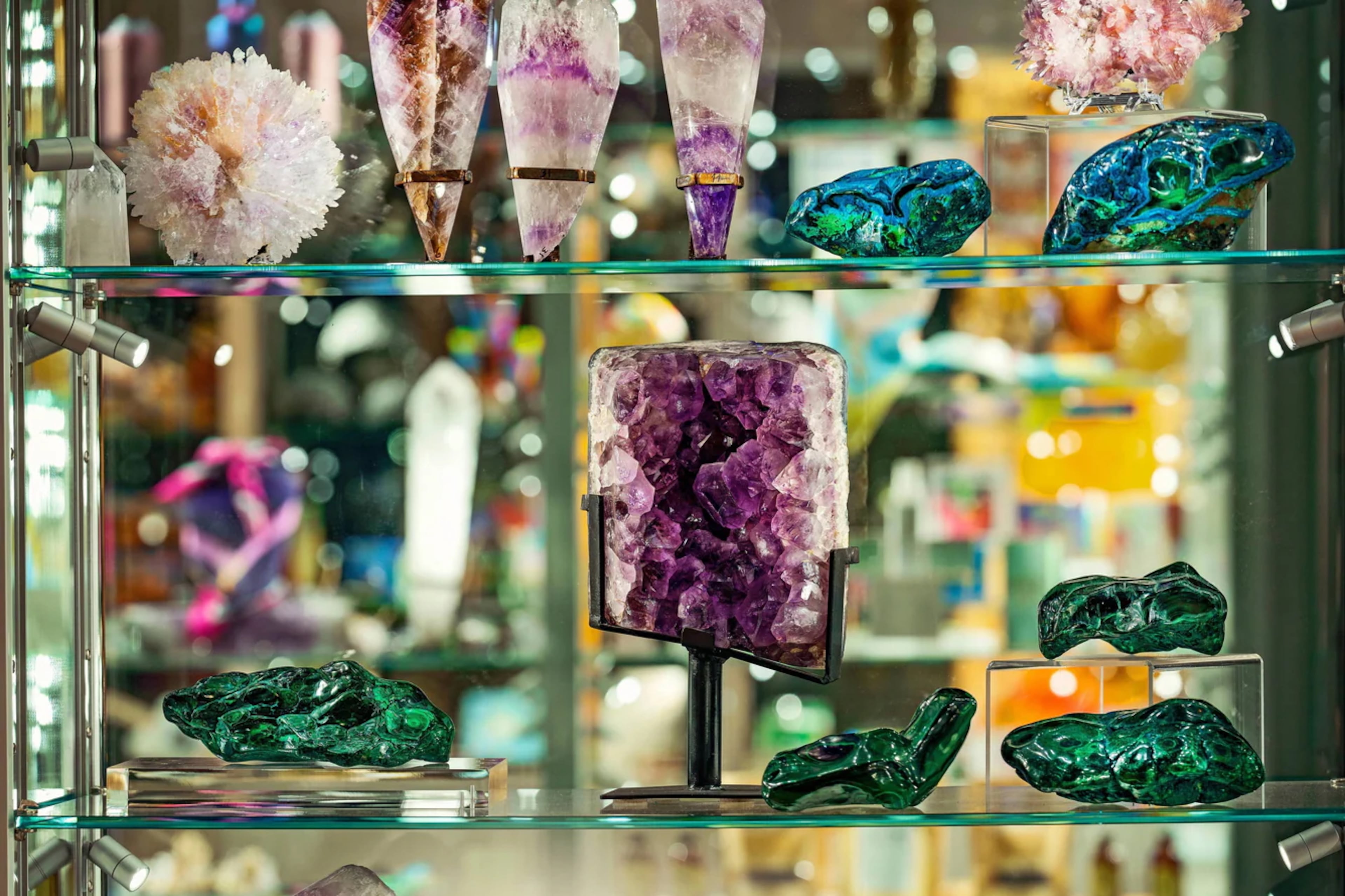Richard Kessler twice gave the hotel industry a wake-up call. He’s not done.

SAVANNAH ― No splurging, Richard Kessler was told. Go build a motel at the McDonough exit along I-75, and remember the rooms rent for $8 a night. Use solid panel doors instead of sliding glass entryways. Install 18-inch TVs, not 24- or 28-inch. Make the lobby a cubby and don’t bother with meeting rooms.
This is a Days Inn, not a Holiday Inn, his new boss reminded him.
Kessler smiles at the memory, one still fresh 55 years later. Kessler would go on to build hundreds more Days Inns under the mentorship of fellow Savannahian and family friend Cecil Day. He later ran the company for nearly a decade, making the no-frills chain’s properties ubiquitous along East Coast interstates.
Yet the grin he flashes in recounting the story has more to do with the landmark hotel he’s sitting in on this steamy Savannah summer day than any of the Days Inn roadside rests.

Kessler’s Plant Riverside along Savannah’s River Street marks its fifth anniversary on July 29. He didn’t sweat the costs of guest room televisions — or anything else — here. Built in the shell of a century-old power plant, the $375 million complex anchored by a 400-room JW Marriott is Kessler’s legacy property. The cavernous lobby doubles as a natural science museum, with a 135-foot-long, chrome-plated dinosaur skeleton as its centerpiece, and fine artworks dot Plant Riverside’s many public spaces.

Hospitality industry insiders use words like “icon” and “pioneer” to describe Kessler because he defined two hotel segments on opposite ends of the spectrum: budget-friendly with Days Inn and boutique luxury with Plant Riverside and The Kessler Collection’s other nine destination hotels.
Imagine if McDonald’s Ray Kroc had also fathered Del Frisco’s. Or if fashion giant Giorgio Armani had launched Old Navy.
And Kessler remains a trailblazer. He turns 80 next year, yet is still mapping out expansion plans fueled by decades of out-of-the-box ideas and a remarkable collection of objects that now fills several warehouses.
“He pours himself into projects,” said Mark Smith, a Savannah businessperson whom Kessler hired out of Georgia Tech 50 years ago. “He can squeeze 40 hours into a 24-hour day, yet somehow still maintain his creativity. He’s relentless when it comes to making his vision into reality.”

A pitching ace
Every successful visionary is a shrewd salesperson, and Kessler’s peddling days started with pedaling — his bicycle. As a boy, he’d pick the okra grown in the family garden, hop on his bike and deliver the crop to a neighboring farmer for sale at the nearby Savannah State Farmers Market.
When the farmer returned the unsold product, Kessler would hop back aboard his bicycle and sell door to door in his rural Effingham County neighborhood. Sometimes, if he had ample product left to move, he’d recruit his irresistibly cute younger sister to ride on the handlebars and assist in sales.
By many accounts, his pitch skills grew from there to rival those of a Cy Young winner.
- He talked his way into Georgia Tech when the admissions director told him his test scores weren’t high enough.
- New to his first job after graduation from Georgia Tech — and just 23 years old — he convinced several members of Day’s executive team of the potential for budget roadside motels before Days Inn’s launch.
- On a visit to Central Florida in early 1972, Kessler noticed the interest in a newly opened theme park outside Orlando. He sold Day on building multiple properties on land near Disney World’s gates, starting with just $1,000 in seed money.
- After the oil embargo brought leisure travel to a halt and threatened to bankrupt Days Inn, the newly named CEO — age 29 — reassured creditors the company would bounce back. In his first year leading the company, Days Inn went from losing $4 million to posting a $500,000 profit. By the time the company sold eight years later, earnings topped $25 million annually.
- Following Days Inn’s sale for $300 million in 1984, Kessler turned down an offer from Bill Marriott to start a new hotel brand, Fairfield Inn. But the two pioneering hoteliers maintained a relationship that in 2010 led to seven Kessler properties becoming founding hotels in the Marriott Autograph Collection, with Kessler serving as the original brand ambassador.

Then there’s Plant Riverside. The power plant shuttered in 2005 after nearly a century of producing electricity. By the time Kessler bought the property seven years later, the interior was crumbling and “there was a waterfall in the basement,” where river water had seeped in, Kessler said.
Kessler toured Joe Marinelli of Visit Savannah, the city’s convention and visitors bureau, around what Marinelli described as a “wreck of a space” before Plant Riverside’s redevelopment began. Kessler laid out his vision.
“I told him I couldn’t see what he was seeing,” Marinelli said. “He chuckled and said, ‘That’s OK, I don’t need you to.’”
Plant Riverside opened more than six years later, and its JW Marriott hotel has maintained an occupancy rate of above 80% despite average room rates of around $400 a night. The hotel, the 14 restaurants and bars, the concert hall and the retail space leases combine to account for nearly half of The Kessler Collection’s total revenue.
“I’d always wanted to build more than your traditional hotel, to go beyond a restaurant, a bar, maybe a spa and a golf course,” he said. “This is my city. A city within an already great city.”

Treasure hunting
Plant Riverside is but one of Kessler’s many showplaces.
There’s the mountain lodge he built above Reedy Falls, a picturesque rock cascade in downtown Greenville, South Carolina. There’s the historic Casa Monica hotel in St. Augustine, Florida, with its Moorish Revival architecture that dates to 1888. His personal residence, the Kessler Armstrong Mansion on Forsyth Park, is one of Savannah’s grandest homes.

All double as treasure chests for Kessler’s vast number of collectibles. Geodes as tall as a man. Ice age fossils. Jewelry and watches. Paintings. Sculptures. Native American arrowheads and bowls. Chandeliers. Taxidermy. Silver flatware and tea sets. Rugs and tapestries.
For every antique dueling pistol and custom-made Bösendorfer piano on display, though, there are multitudes more in storage. Kessler owns four cavernous warehouses full of art and antiques. According to those who have visited, the collectibles are arranged by style in rows that stretch the length of the building: one line of tables holds dishes and chinaware; another, paintings and sculpture; a third, jewelry.
“My son jokes that we need to build 10 more hotels just to clear out the inventory,” Kessler said. “When I see something of superb craftsmanship or beauty, I acquire it.”

Kessler started collecting about the same time he launched his okra business. He grew up on a dirt road in a small house his father, a self-trained pipefitter, built himself. The Kesslers had lived in the area for generations ― he’s a descendant of the Salzburgers, a group of 37 Lutheran families who fled religious persecution in Austria in the 1730s and settled in the newly formed Georgia colony.
The Kesslers lived modestly. Rather than collect coins, baseball cards or other keepsakes that must be purchased, Kessler started with rocks, arrowheads and crystals he’d come across while playing outside as a boy.
When the Days Inn sale made Kessler wealthy enough to retire as a 39-year-old — he owned a significant stake by the time Day’s widow, Marian, arranged the deal following her husband’s death from bone cancer — he finally had the means, both in funds and free time, to become a serious collector.
By the time he reentered the hotel business a decade later, this time with a focus on boutique properties, he had a collectibles stockpile to pull from in decorating. The same man who once picked upholstery patterns for the functional furniture in a Days Inn was suddenly matching artwork in his collection to the themes of his destination hotels.
It’s why, when he decided to lean into the connection between prehistoric times and fossil fuel power generation in designing Plant Riverside, he didn’t have to shop for geodes or dinosaur fossils. He already owned them — although he did have to commission the replica of the Amphicoelias fragillimus skeleton and have the bones chrome plated.

Kessler aspires to create a collectors museum in his hometown. A proposal to redevelop a historic school building in downtown Savannah into a Smithsonian-quality exhibit space was rejected by the property owner, the Savannah Board of Education. He holds out hope that the school board will reconsider the $130 million project.
An eye toward the future
Just as Kessler once handled every aspect of Days Inn’s new hotel development “save for swinging hammers,” he remains involved in the day-to-day details of The Kessler Collection’s hotel business.
Nothing escapes his practiced eye: He’ll interrupt a tour of Plant Riverside to suggest a slight tweak to a merchandise display in a shop or pick up litter discarded on a sidewalk outside a hotel entrance.
Despite being 79 years old, he spies many more business opportunities. By next year, he expects to ink new hotel deals to triple The Kessler Collection’s growth rate through joint ventures.

He is also positioning the company for third-generation leadership when he finally steps down. He has three teenage grandsons by his daughter, Laura, and envisions the day when they take over from their uncle, Mark, and run The Kessler Collection for 30 years.
One already works part-time at Plant Riverside as a maintenance team assistant. Another is interested in culinary arts and works in the Plant Riverside bakery. The youngest wants to be a doctor — a neurosurgeon — and is a standout student.
Courting them could be Kessler’s most important sales job yet.
“I tell them they could do wonders with this business because they’re creative, they have a good aesthetic, and they get things done,” Kessler said. “I’m trying to get the idea across.”
In the meantime, Kessler and his son, Mark, are leading the expansion efforts with a focus on the East Coast and Sun Belt. The newest project is a classic car-themed hotel in Richmond Hill, Georgia, once the southern home of automotive pioneer Henry Ford. The hotel is under construction and located at an exit along I-95, Kessler’s first interstate-side rest since the Days Inn times.
“I guess you could say I’m going back to my roots,” Kessler said. “But I don’t have to pinch pennies in the same way.”




